Before Brown v. Board of Education, Sweatt and McLaurin Challenged “Separate But Equal”
When it comes to controversial Supreme Court decisions, Plessy v. Ferguson remains a flashpoint. The 1896 decision perpetuated segregation if the transportation or facility in question was “equal” in quality to the thing that was serving the white population. Of course, the facilities in question were rarely equal in quality, design, or funding. In 1954, Brown v. Board of Education smashed that notion in a decision that rendered segregation of public schools to be unconstitutional. However, two cases decided in 1950 laid the groundwork for Brown by challenging “separate but equal” in higher education. Those cases were Sweatt v. Painter and McLaurin v. Oklahoma State Regents, and their decisions were returned 70 years ago today.
Sweatt v. Painter involved Herman Marion Sweatt. Sweatt, who was black, applied to the University of Texas School of Law, but was denied admission. The rationale handed down by the University president Theophilus Painter was that the constitution of the state of Texas banned integrated education. Sweatt’s original suit received a continuation in state district court, which was a stall tactic for the school. The University of Texas then put together a law school in Houston for black students, which wasn’t even in the same city (Austin) as the original School of Law. With the support of the NAACP, Sweatt took the case to federal court on the grounds that the facilities, while separate, were in no way equal.
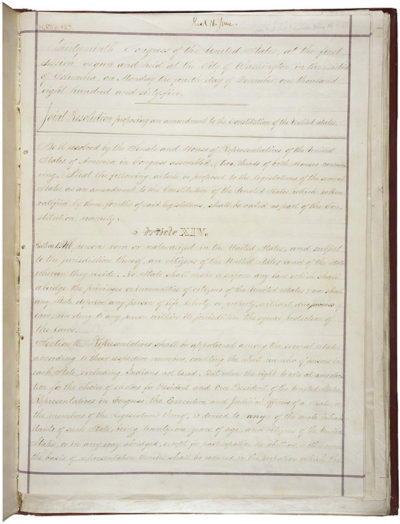
The Supreme Court decided in favor of Sweatt, agreeing that the facilities created for black students suffered greatly in comparison. Examples in the unanimous decision included the smaller number of faculty, the vast disparity in library size, and a variety of other facilities issues. The Court also cited the Equal Protection clause of the 14th Amendment as the constitutional basis upon which Sweatt should be admitted.
McLaurin v. Oklahoma State Regents involved graduate programs at the University of Oklahoma. George W. McLaurin had earned a Master’s in Education from University of Kansas, but was denied the opportunity to pursue his Doctorate at Oklahoma. McLaurin sued in U.S. District Court, invoking the 14th Amendment, and won. The school admitted him, but forced him into separate facilities, even occasionally making him eat at times when white students weren’t present. McLaurin petitioned the District Court for redress, but was denied, so he took the case to the Supreme Court. In another unanimous decision that also leaned on the 14th Amendment, the Court held that the school couldn’t restrict McLaurin in that manner.
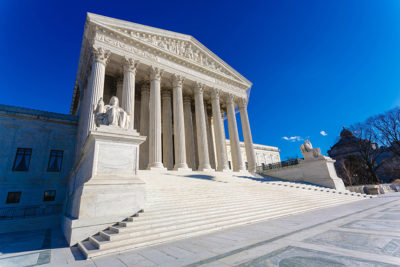
The two cases set the stage for Brown v. Board of Education four years later. Another influential case leading up to Brown was Mendez v. Westminster, which allowed the integration of Mexican-American students into the California school system. The Supreme Court Justices deciding on Brown would also invoke the 14th Amendment and unanimously vote to overturn the “separate but equal” notion that had been enshrined in Plessy.
Sweatt and McLaurin may not be as widely known, but they remain significant steps along the way toward realizing an equal vision of education in America. They set important precedents that allowed bigger decisions to be made later. 70 years on, in an America that still struggles mightily with a legacy of segregation and mistreatment, it’s important to acknowledge that the smaller victories can still bring about greater triumphs.
Featured image: Shutterstock
12 Nominees Who Didn’t Make It to the Supreme Court
Since the Supreme Court was established in 1789, there have been 41 candidates who did not ascend to the highest court in the land.
Most unsuccessful candidates realized they had little chance of being approved. They declined the offer or withdrew their name from consideration.
Others saw their candidacy die in the Senate Judiciary Committee.
Although every candidate for the Supreme Court has faced the possibility of being rejected by the Senate, the process for selecting candidates is usually thorough, which is why a candidate has a 73% chance of being approved.
But in 12 cases, the nominees had their hearing and a Senate vote, but were voted down.
Robert Bork
Perhaps the most famously rejected nominee was Robert H. Bork. He had been President Nixon’s solicitor general in 1968, and had fired special prosecutor Archibald Cox when Nixon’s attorney general and assistant attorney general refused to do the firing. This incident was played up when Bork was nominated for the Supreme Court in 1987 by President Reagan.
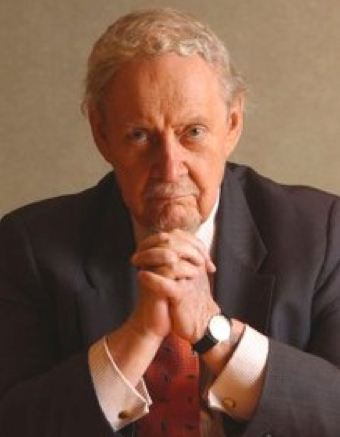
Robert Bork (United States Department of Justice; Wikipedia Commons)The Democrats mounted an aggressive campaign for his rejection. They pointed to Bork’s expressed interest in reversing civil rights decisions made by the Supreme Court in recent decades. They cited his opposition to the idea of voting rights and his support of poll taxes.
Bork always maintained he had been grossly misrepresented, particularly by Senator Edward Kennedy in a bitter denunciation in the Senate.
Bork’s supporters were so incensed by his 42-58 rejection that his name became a verb: “to Bork” now means to unfairly attack someone’s character through an organized campaign.
But Robert Bork wasn’t the first Court nominee to be rejected for his own flaws or those of the president who nominated him.
John Rutledge
In 1795, George Washington used a recess appointment to put John Rutledge, a South Carolina judge, on the court. When Congress returned, the Senate convened to vote on his permanent appointment. Rutledge had made enemies in the Capitol for attacking Chief Justice John Jay’s recent treaty with Great Britain. Compounding this were accusations of drinking and mental instability, which Rutledge somewhat substantiated when he attempted suicide when rejected 10–14.
Alexander Wolcott
Alexander Wolcott, a customs inspector, was nominated by James Madison in 1811, but rejected by the Senate for his lack of judicial experience. He was also disliked for strictly enforcing the unpopular Embargo Act of 1807, which blocked imports from France and England. He was defeated 9-24.
John C. Spencer
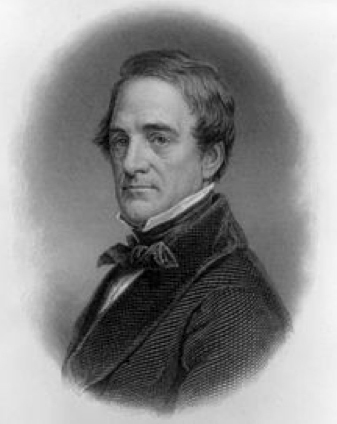
John C. Spencer, treasury secretary to President John Tyler, lost his bid for the court in 1841 when southern senators blocked what they viewed as an unsympathetic, northern judge. Perhaps an even greater objection was that Tyler, who’d nominated him, was feuding with his own political party, which wasn’t inclined to approve his choice. The final vote was 21-26.
George W. Woodward
George W. Woodward, a judge in the fourth district court and President James Polk’s nominee, never made it to the Court in 1844. Polk suspected that James Buchanan, who believed he’d been promised the judgeship, had successfully lobbied the senators against Woodward, who was rejected 20-29.
Jeremiah S. Black
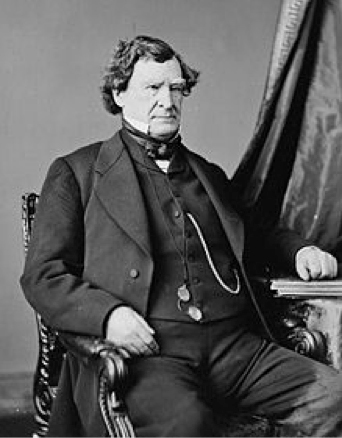
Secretary of State Jeremiah S. Black was nominated by President James Buchanan in January 1861, with just weeks left in Buchanan’s term. Republican senators blocked his choice with a narrow 25-26 vote so that incoming President Lincoln could fill the seat with his nominee.
Ebenezer R. Hoar
Attorney General Ebenezer R. Hoar, President Grant’s 1869 nominee, ran into opposition because he didn’t support the spoils system that gave out judgeships in the Circuit Court as political favors. Also, Hoar still had enemies in the Senate for opposing the impeachment of President Andrew Johnson.
William Hornblower
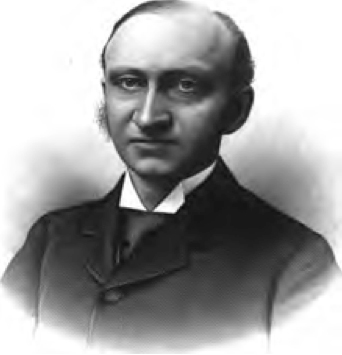
In 1893, William Hornblower was one of two rejected nominees named by President Grover Cleveland. He failed to secure the nomination by a 24-30 vote, because of Republican opposition (Cleveland was a Democrat). Also, Cleveland had bypassed the recommendations of David B. Hill, a leading New York senator, who responded by sinking Hornblower’s chances.
Wheeler Hazard Peckham
The next year, Cleveland ran into the same problem from the same senator when he nominated Wheeler Hazard Peckham. Again Senator Hill gathered enough votes to reject Cleveland’s nominee, 32-41.
John J. Parker
This North Carolina judge was opposed by organized labor for his frequent opinions for businesses against trade unions. President Hoover’s 1930 choice was also opposed by the NAACP for saying, “The participation of the Negro in politics is a source of evil and danger to both races and is not desired by the wise men in either race or by the Republican party of North Carolina.” Parker lost 39-41. Ironically, he returned to his position as an appeals court judge, where he made several decisions favoring African-American civil rights.
Clement Haynsworth
Haynsworth was a southern federal appeals court judge nominated in 1969 by President Richard Nixon. He was rejected 45-55 by the senators for his decisions opposing the integration of schools and the rights of labor unions.
G. Harrold Carswell
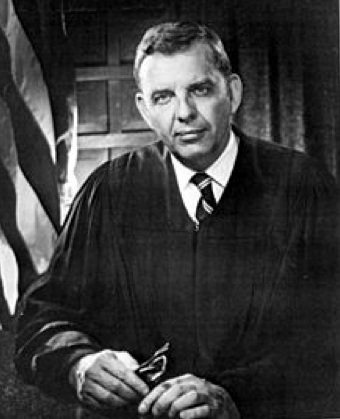
The following year Nixon came back with Carswell, whose judicial opinions had supported segregation and opposed women’s rights. He was also regarded as a less than stellar judge: 58% of his decisions as a district court judge were overturned on appeal. And he wasn’t helped when Nebraska senator Roman Hruska defended Carswell’s performance by saying, “Even if he is mediocre, there are a lot of mediocre judges and people and lawyers, and they’re entitled to a little representation, aren’t they?” He was rejected 45-51.
Featured image: Shutterstock
Great American Thinkers on Free Speech
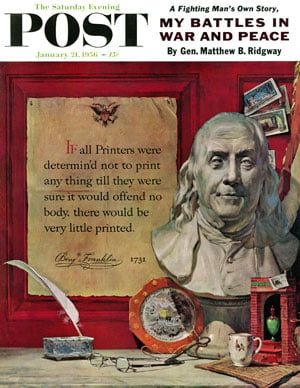
“Freedom of speech is a principal pillar of a free government: When this support is taken away, the constitution of a free society is dissolved,” wrote Founding Father Benjamin Franklin in The Pennsylvania Gazette.
You’ll find more notable quotes on the freedom of expression, a right U.S. citizens have held dear for more than 200 years, below:
“If all printers were determined not to print anything till they were sure it would offend nobody, there would be very little printed.”
— Benjamin Franklin, U.S. Founding Father
“But none of the means of information are more sacred, or have been cherished with more tenderness and care by the settlers of America, than the press.”
— John Adams, second U.S. president
“The liberty of the press is essential to the security of the state.”
— John Adams, second U.S. president
“If men are to be precluded from offering their sentiments on a matter, which may involve the most serious and alarming consequences that can invite the consideration of mankind, reason is of no use to us; the freedom of speech may be taken away, and dumb and silent we may be led, like sheep, to the slaughter.”
— George Washington, first U.S. president
“Our liberty depends on the freedom of the press, and that cannot be limited without being lost.”
— Thomas Jefferson, U.S. Founding Father
“Congress shall make no law respecting an establishment of religion, or prohibiting the free exercise thereof; or abridging the freedom of speech, or of the press; or the right of the people peaceably to assemble, and to petition the government for a redress of grievances.”
— U.S. Constitution
“Were it left to me to decide whether we should have a government without newspapers, or newspapers without a government, I should not hesitate a moment to prefer the latter.”
— Thomas Jefferson, U.S. Founding Father
“Freedom of speech is a principal pillar of a free government: When this support is taken away, the constitution of a free society is dissolved, and tyranny is erected on its ruins. Republics and limited monarchies derive their strength and vigor from a popular examination into the action of the magistrates.”
— Benjamin Franklin, U.S. Founding Father
“It is the function of speech to free men from the bondage of irrational fears.”
— Louis D. Brandeis, U.S. Supreme Court justice
“We are so concerned to flatter the majority that we lose sight of how very often it is necessary, in order to preserve freedom for the minority, let alone for the individual, to face that majority down.”
— William F. Buckley Jr., founder of National Review magazine
“Of that freedom [of thought and speech] one may say that it is the matrix, the indispensible condition, of nearly every other form of freedom.”
— Benjamin N. Cardozo, U.S. Supreme Court justice
“Freedom is not a luxury that we can indulge in when at last we have security and prosperity and enlightenment; it is, rather, antecedent to all of these, for without it we can have neither security nor prosperity nor enlightenment.”
— Henry Steele Commager, U.S. historian
“We cannot have a society half slave and half free; nor can we have thought half slave and half free. If we create an atmosphere in which men fear to think independently, inquire fearlessly, express themselves freely, we will in the end create the kind of society in which men no longer care to think independently or to inquire fearlessly.”
— Henry Steele Commager, U.S. historian
“The freedom of speech and the freedom of the press have not been granted to the people in order that they may say the things which please, and which are based upon accepted thought, but the right to say the things which displease, the right to say the things which may convey the new and yet unexpected thoughts, the right to say things, even though they do a wrong.”
— Samuel Gompers, U.S. labor leader
“If there is any principle of the Constitution that more imperatively calls for attachment than any other it is the principle of free thought — not free thought for those who agree with us but freedom for the thought that we hate.”
— Oliver Wendell Holmes Jr., U.S. Supreme Court justice
“We are reluctant to admit that we owe our liberties to men of a type that today we hate and fear — unruly men, disturbers of the peace … in a word, free men. … Freedom is always purchased at a great price, and even those who are willing to pay it have to admit that the price is great.”
— Gerald W. Johnson, U.S. journalist
“Freedom of conscience, of education, or speech, of assembly are among the very fundamentals of democracy and all of them would be nullified should freedom of the press ever be successfully challenged.”
— Franklin D. Roosevelt, 32nd U.S. president
“You tell me that law is above freedom of utterance. And I reply that you can have no wise laws nor free entertainment of wise laws unless there is free expression of the wisdom of the people — and, alas, their folly with it. But if there is freedom, folly will die of its own poison, and the wisdom will survive.”
— William Allen White, Pulitzer Prize-winning editor